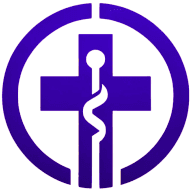In the dynamic world of healthcare, regulatory compliance stands as a critical pillar. It ensures patient safety, protects privacy, and upholds the integrity of the healthcare system. This blog post will delve into the intricacies of healthcare regulatory compliance, offering insights into its importance, challenges, and strategies for effective implementation.
Understanding Healthcare Regulatory Compliance
Healthcare regulatory compliance refers to the process of adhering to laws, regulations, guidelines, and specifications relevant to healthcare practices. It's a multifaceted concept that encompasses various aspects, including patient safety, data protection, and ethical conduct.
The healthcare sector is heavily regulated, with numerous laws and guidelines set by different regulatory bodies. These regulations are designed to protect patients, ensure the quality of care, and maintain the integrity of the healthcare system. Non-compliance can lead to severe penalties, including fines, legal action, and damage to the organization's reputation.
Compliance is not a one-time event but an ongoing process. It requires continuous monitoring, regular audits, and updates to policies and procedures to reflect changes in regulations. It's a complex task that demands a thorough understanding of the regulatory landscape, effective compliance programs, and a culture of compliance within the organization.
The Importance of Healthcare Regulatory Compliance
Regulatory compliance in healthcare is not just about avoiding penalties—it's about ensuring the best possible care for patients. It plays a crucial role in safeguarding patient safety and privacy, promoting ethical practices, and improving the overall quality of care.
Patient safety is a primary concern in healthcare. Regulations are in place to ensure that healthcare providers follow best practices to prevent errors, reduce risks, and enhance patient outcomes. Compliance with these regulations helps to prevent adverse events, improve patient satisfaction, and build trust in the healthcare system.
Data protection is another critical aspect of healthcare regulatory compliance. With the increasing use of electronic health records (EHRs) and other digital technologies, the healthcare sector is a prime target for cyberattacks. Compliance with data protection regulations helps to safeguard sensitive patient information, prevent data breaches, and maintain patient trust.
Challenges in Healthcare Regulatory Compliance
Despite its importance, achieving healthcare regulatory compliance is no easy task. It presents several challenges, including the complexity of regulations, the rapid pace of regulatory changes, resource constraints, and the need for effective compliance management systems.
The healthcare regulatory landscape is complex and ever-changing. New regulations are continually being introduced, and existing ones are regularly updated. Keeping up with these changes and ensuring compliance can be a daunting task, especially for smaller healthcare providers with limited resources.
Resource constraints are another significant challenge. Compliance requires time, effort, and money. It involves training staff, implementing compliance programs, conducting audits, and more. For many healthcare providers, especially those in resource-limited settings, these requirements can be overwhelming.
Strategies for Effective Healthcare Regulatory Compliance
Despite the challenges, healthcare providers can adopt several strategies to enhance their compliance efforts. These include developing a robust compliance program, fostering a culture of compliance, leveraging technology, and investing in compliance training and education.
A robust compliance program is the foundation of effective regulatory compliance. It should include clear policies and procedures, regular audits, effective reporting mechanisms, and corrective action plans. It should also be flexible enough to adapt to changes in the regulatory landscape.
Fostering a culture of compliance is equally important. Compliance should not be seen as a burden but as an integral part of the organization's operations. Everyone, from top management to frontline staff, should understand the importance of compliance and be committed to upholding it.
The Role of Technology in Healthcare Regulatory Compliance
Technology can play a crucial role in enhancing healthcare regulatory compliance. It can help automate compliance processes, provide real-time visibility into compliance status, and enable proactive compliance management.
Compliance management software, for example, can help streamline compliance processes by automating tasks such as data collection, monitoring, and reporting. It can also provide real-time insights into compliance status, helping organizations identify and address compliance issues promptly.
Electronic health records (EHRs) can also support compliance efforts. They can help ensure accurate and complete documentation, enhance data security, and facilitate compliance with regulations related to patient safety and privacy.
The Future of Healthcare Regulatory Compliance
The future of healthcare regulatory compliance is likely to be shaped by several trends, including the increasing use of technology, the growing focus on data privacy, and the evolving regulatory landscape.
As technology continues to advance, it will play an even more significant role in compliance. Artificial intelligence (AI), for example, could be used to automate compliance tasks, predict compliance risks, and provide personalized compliance guidance.
Data privacy will also continue to be a major focus. With the increasing use of digital technologies in healthcare, protecting patient data will become even more critical. Healthcare providers will need to invest in robust data security measures and ensure compliance with evolving data protection regulations.
Wrapping Up: The Intricacies of Healthcare Regulatory Compliance
Navigating the complexities of healthcare regulatory compliance is a challenging but essential task. It requires a deep understanding of the regulatory landscape, a commitment to compliance at all levels of the organization, and the effective use of technology. Despite the challenges, the benefits of compliance—improved patient safety, enhanced data protection, and increased trust in the healthcare system—make it a worthwhile endeavor.

